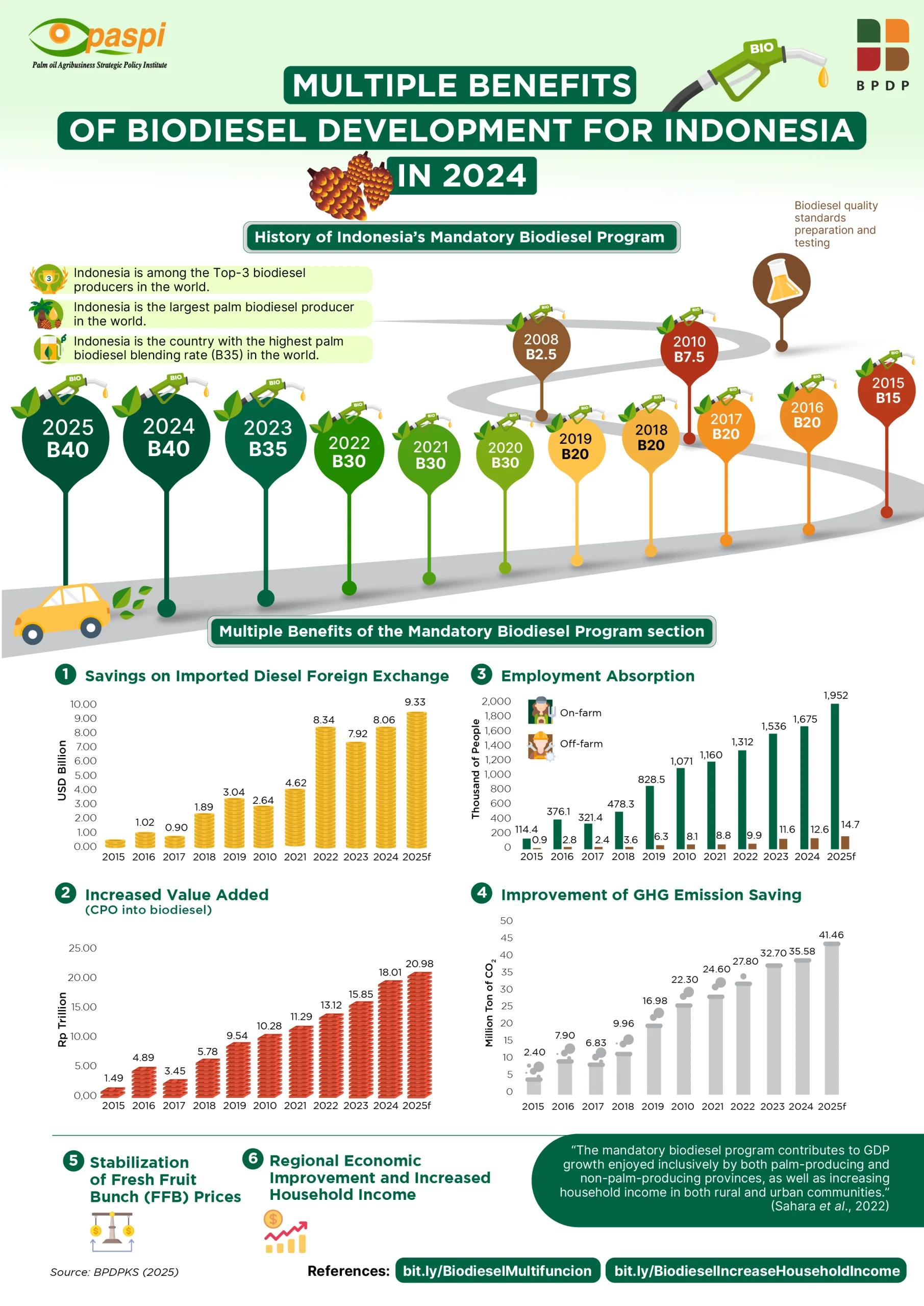
Multiple Benefits of Biodiesel Development for Indonesia in 2024
Indonesia’s Commitment to Renewable Energy Development Based on Palm Oil
Why is the biodiesel policy important for national energy security?
Indonesia continues to show its commitment as one of the countries actively developing renewable energy, especially palm oil-based biodiesel. After successfully implementing B35 in 2023, the Indonesian government has advanced its mandatory biodiesel policy to B40 (a 40 percent biodiesel blend in diesel) since 2024.
Indonesia’s Achievement
Indonesia is recorded as the country with the world’s highest biodiesel blending rate and the third largest biodiesel producer globally after the European Union and the United States.
How does Indonesia contribute to the global biodiesel market?
The mandatory biodiesel program has played a strategic role in generating multiple benefits. The multibenefit nature of biodiesel is reflected in a range of positive impacts, including foreign exchange savings on diesel imports, increased added value of CPO, job creation, stabilization of global CPO prices, increased household and regional income, and a tangible contribution to carbon emissions reduction.
How does the biodiesel program enhance palm product value and create jobs?
As the blending ratio between palm-based biodiesel (FAME) and fossil diesel increases, the benefits also expand. According to BPDPKS data (2025), B40 implementation in 2024 boosted the added value of palm products to IDR 20.98 trillion and created jobs for 14.7 thousand people in off-farm sectors and 1.95 million people in on-farm sectors.
How does biodiesel contribute to reducing carbon emissions?
The mandatory biodiesel program has made a real contribution to reducing carbon emissions. B40 implementation in 2024 succeeded in cutting carbon emissions by 41.46 million tons of CO₂, demonstrating Indonesia’s strong commitment to global climate change mitigation efforts.
Million Tons of CO₂ Reduced by 2025
How does biodiesel stabilize global CPO prices and boost regional economies?
The mandatory biodiesel program plays a role in stabilizing global CPO prices and increasing household and regional economic income. These positive effects are inclusively felt by both palm-producing and non-palm-producing provinces.
What are the positive impacts of the mandatory biodiesel program on national and regional economic growth?
Various empirical studies align with the observed benefits of implementing Indonesia’s mandatory biodiesel program. A study by Sahara et al. (2022) reveals that palm biodiesel development supported by mandatory policies has positively influenced economic growth at the national, regional, and household levels.
Inclusive Impact
The increase in GRDP is inclusively enjoyed by both palm and non-palm provinces. Household income growth is also inclusively felt by palm smallholder communities as well as non-palm rural populations and urban households.
Citations
- Sahara, Dermawan, A., Amaliah, S., et al. (2022). Economic impacts of biodiesel policy in Indonesia: a computable general equilibrium approach. Journal of Economic Structures, 11(22). https://doi.org/10.1186/s40008-022-00281-9
- DAMPAK MANDATORI BIODIESEL SAWIT BAGI PEREKONOMIAN DAERAH DAN PENDAPATAN RUMAH TANGGA
